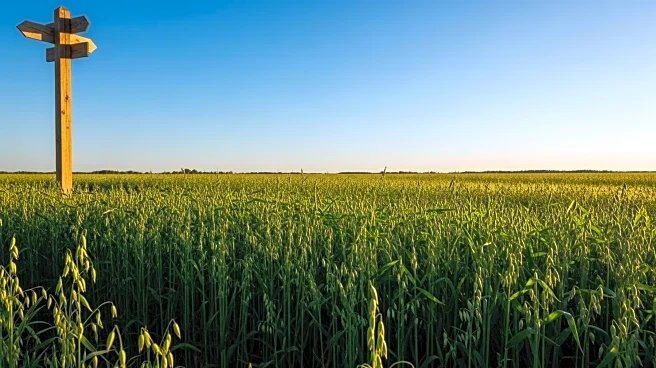What is the story about?
What's Happening?
The 4th Annual Regenerative Organic Oats (ROO) Field Days took place at Katerynych Family Farm near Richard, Saskatchewan, showcasing advancements in sustainable agriculture. Hosted by Nature’s Path Organic Foods in collaboration with Canadian Organic Growers, the event brought together farmers, industry partners, and community leaders to discuss regenerative farming practices. Attendees participated in field demonstrations and farmer-to-farmer sessions, focusing on soil health, biodiversity, and innovative technologies like roller crimpers. The event emphasized the importance of community building around shared values and sustainable farming practices.
Why It's Important?
Regenerative farming practices are crucial for enhancing soil health, reducing agricultural inputs, and ensuring long-term farm resilience. Events like the ROO Field Days promote collaboration among farmers, food brands, and environmental advocates, fostering a movement towards a more sustainable food system. By adopting these practices, farmers can improve land quality, support local communities, and contribute to a sustainable future for agriculture. The growing interest in regenerative farming reflects a shift towards environmentally friendly and socially responsible agricultural methods.
What's Next?
The momentum behind regenerative agriculture is expected to continue growing, inspiring more farmers across North America to adopt sustainable practices. Future events and collaborations may focus on expanding the reach of regenerative farming techniques and strengthening networks among stakeholders. As awareness increases, there may be more opportunities for policy support and funding to encourage widespread adoption of these practices.
Beyond the Headlines
Regenerative farming not only addresses environmental concerns but also has social and economic implications. By improving soil health and reducing reliance on chemical inputs, farmers can achieve better yields and profitability. Additionally, these practices contribute to biodiversity and animal welfare, aligning with broader societal values of sustainability and ethical farming.
















